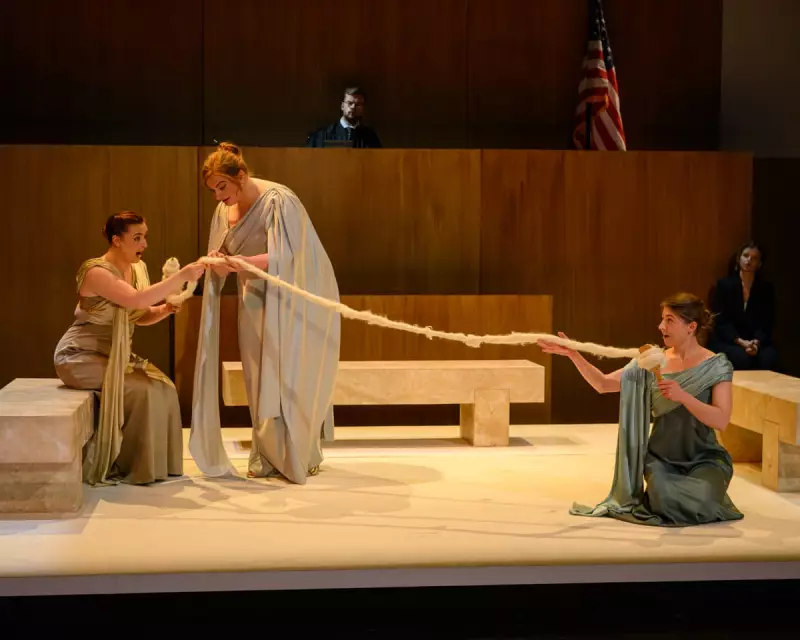
London's cultural scene witnessed an extraordinary resurrection this week as two long-neglected operatic masterpieces took centre stage at the Barbican's Silk Street Theatre. The compelling double bill featured Ethel Smyths' 1902 one-act wonder 'Der Wald' and Ottorino Respighi's 1937 tragedy 'Lucrezia', offering audiences a rare glimpse into operatic history.
Forgotten Treasures Brought to Life
The evening began with Smyths' 'Der Wald' (The Forest), a work that made history as the first opera by a woman performed at New York's Metropolitan Opera. This atmospheric piece, set against a backdrop of woodland mystery, showcased Smyths' distinctive musical voice - one that blends Wagnerian grandeur with her own unique harmonic language.
Under meticulous musical direction, the orchestra navigated Smyths' complex score with precision and passion, bringing out the rich textures and emotional depth that have kept this work unjustly in the shadows for decades.
A Triumph of Vocal Excellence
The production's standout feature proved to be the exceptional vocal performances. The cast tackled both works with remarkable technical skill and dramatic conviction, bringing compelling characterisations to these rarely-performed roles.
Particularly noteworthy were the powerful soprano performances that anchored both operas, demonstrating both the vocal demands and emotional complexity that make these works so rewarding for performers and audiences alike.
Respighi's Overlooked Masterpiece
The second half transported audiences to Renaissance Italy with Respighi's 'Lucrezia', based on the tragic story of Lucretia. While Respighi is celebrated for his Roman tone poems, this opera reveals his deep understanding of vocal writing and dramatic pacing.
The production highlighted Respighi's masterful orchestration and his ability to create tension through both vocal lines and instrumental colour. The dramatic intensity built steadily throughout, culminating in a profoundly moving conclusion that left the audience spellbound.
A Testament to Operatic Rediscovery
This ambitious double bill represents more than just an evening of beautiful music - it's a significant contribution to the ongoing rediscovery of overlooked operatic repertoire. By bringing these works together, the production created fascinating dialogues about musical style, dramatic storytelling, and the changing fortunes of composers throughout history.
The thoughtful staging and sensitive musical direction allowed both works to speak with their own distinctive voices while creating a cohesive theatrical experience that felt both historically informed and vibrantly contemporary.
Why This Revival Matters
In an operatic landscape often dominated by the same familiar works, productions like this serve as vital reminders of the rich diversity within the classical canon. The enthusiastic audience response demonstrated that there's both appetite and appreciation for carefully curated rarities when presented with this level of artistic commitment.
This successful revival should encourage other companies to explore the wealth of neglected operatic works waiting to be rediscovered by modern audiences.





